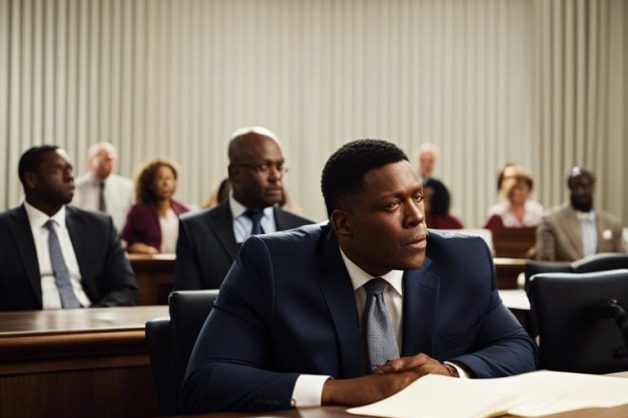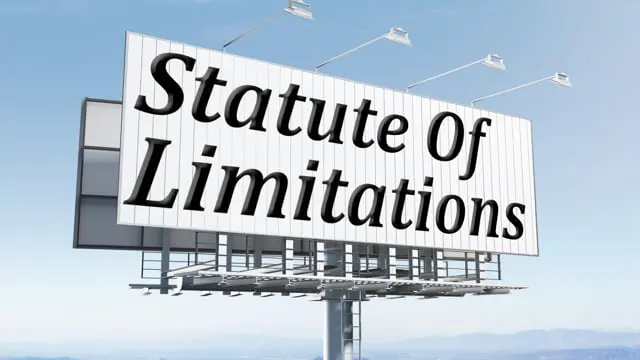A jury trial is a cornerstone of the American judicial system, providing a means for ordinary citizens to participate in the administration of justice. The right to a jury trial is enshrined in the U.S. Constitution, specifically in the Sixth Amendment for criminal cases and the Seventh Amendment for civil cases. This right ensures that a group of impartial peers will hear the evidence and determine the facts of the case, thereby serving as a check on governmental power and protecting individual liberties.
The Importance of Jury Trials
Jury trials play a critical role in ensuring that justice is administered fairly and impartially. By involving ordinary citizens in the decision-making process, the jury system helps ensure that the community’s values and perspectives are reflected in judicial outcomes. Jurors are tasked with determining the facts of the case, evaluating the evidence presented, and rendering a verdict based on their collective judgment. This process promotes transparency, accountability, and public confidence in the legal system.
In a juicio penal, the jury’s role is to determine whether the defendant is guilty or not guilty of the charges brought against them. The prosecution must prove the defendant’s guilt beyond a reasonable doubt, a standard designed to prevent wrongful convictions. In civil trials, the jury decides on liability and damages, determining whether the defendant is responsible for harm caused to the plaintiff and, if so, what compensation is appropriate.
The Jury Selection Process
En jury selection processtambién conocido como voir dire, is crucial to ensuring a fair and impartial jury. During voir dire, potential jurors are questioned by the judge and attorneys from both sides to assess their suitability for the case. This process aims to identify any biases or preconceptions that could affect a juror’s ability to be objective.
Attorneys can challenge potential jurors for cause if they believe a juror cannot be impartial. Additionally, each side has a limited number of peremptory challenges, which allow them to exclude jurors without providing a reason. The goal is to select a jury that can fairly evaluate the evidence and render an impartial verdict.
Voir dire is not just a procedural formality; it is a fundamental principle that ensures the integrity of the jury trial process. Any potential bias or preconceived notion must be carefully scrutinized to protect the rights of both parties. The questioning during voir dire often involves inquiries about jurors’ backgrounds, beliefs, and experiences that may relate to the case at hand.
The Jury’s Role During Trial
Once selected, jurors are tasked with listening to the evidence presented by both the prosecution and defense. They must evaluate witness testimony, review physical evidence, and consider the arguments made by the attorneys. Throughout the trial, jurors are instructed by the judge on legal standards and procedures, which they must apply when deliberating and reaching a verdict.
Jurors must remain impartial and avoid discussing the case with anyone outside the courtroom. They are also instructed not to conduct independent research or seek out information about the case. The integrity of the jury’s deliberations depends on their ability to base their verdict solely on the evidence presented in court.
Jury Deliberation and Verdict
After all evidence has been presented and closing arguments made, the jury retires to deliberate. Deliberations are conducted in private, and jurors must discuss the evidence and attempt to reach a unanimous verdict. In criminal cases, the verdict must be unanimous to convict or acquit the defendant. In civil cases, some jurisdictions allow for non-unanimous verdicts, though a majority is typically required.
If the jury cannot reach a unanimous decision, it may result in a hung jury, leading to a mistrial. In such cases, the prosecution may choose to retry the case with a new jury. If the jury reaches a verdict, it is read aloud in court, and the judge typically follows the jury’s decision when imposing a sentence or awarding damages.
Challenges and Criticisms of the Jury System
While the jury system is a cornerstone of the American legal system, it is not without its challenges and criticisms. One common concern is the potential for juror bias, despite efforts to screen for impartiality during voir dire. Jurors may also struggle to understand complex legal and technical issues, which can affect their ability to make informed decisions.
Additionally, jury duty can be a significant burden on citizens, requiring them to take time off work and disrupting their daily lives. Despite these challenges, the jury system remains a vital mechanism for ensuring justice and upholding democratic principles in the legal process.
Jury Instructions and Legal Standards
Throughout the trial, the judge provides jurors with instructions on the relevant legal standards and how to apply them to the case. These instructions are crucial for guiding jurors in their deliberations and ensuring they understand the legal framework within which they must operate. Jury instructions cover various aspects, including the burden of proof, the presumption of innocence, and the specific elements of the alleged offense.
Clear and accurate jury instructions are essential for fair and consistent verdicts. Judges must carefully craft these instructions to avoid confusion and ensure that jurors fully comprehend their responsibilities. In some cases, attorneys may request specific instructions or object to certain language, leading to discussions and rulings by the judge.
The Role of Legal Representation in Jury Trials
Effective legal representation is critical in jury trials, as attorneys play a key role in presenting evidence, questioning witnesses, and making persuasive arguments. Both the prosecution and defense must build compelling cases to persuade the jury of their respective positions. Experienced attorneys understand the nuances of jury trials and can strategically navigate the process to advocate for their clients effectively.
In criminal trials, defense attorneys must protect their clients’ rights and ensure they receive a fair trial. This includes challenging the prosecution’s evidence, cross-examining witnesses, and presenting a robust defense. In civil trials, attorneys must demonstrate liability o defend against claims, often involving complex legal and factual issues.
The Impact of Jury Trials on Legal Precedent
Jury trials also play a significant role in shaping legal precedent. While appellate courts typically set binding legal precedents, jury verdicts can influence how laws are interpreted and applied in future cases. High-profile jury trials, in particular, can have a lasting impact on public perceptions of the legal system and contribute to broader discussions about legal reforms and justice.
Legal scholars and practitioners often analyze jury verdicts to gain insights into how jurors interpret evidence and apply the law. This analysis can inform strategies for future cases and highlight areas where legal standards may need clarification or adjustment.
The Psychological Impact of Serving on a Jury
Serving on a jury can be a profound experience for many individuals. Jurors are tasked with making decisions that can significantly impact the lives of others, which can be both a privilege and a heavy responsibility. The psychological impact of serving on a jury varies, with some jurors feeling a sense of civic duty and accomplishment, while others may experience stress or anxiety, especially in cases involving serious crimes or complex issues.
Jury service exposes citizens to the inner workings of the legal system and the realities of courtroom proceedings. This exposure can enhance public understanding and appreciation of the justice system, but it also requires jurors to navigate emotional and ethical challenges. Support systems, such as counseling or debriefing sessions, can be beneficial for jurors who struggle with the psychological demands of their service.
The Future of Jury Trials
The jury system has evolved over time and continues to adapt to societal changes and technological advancements. Innovations such as virtual jury trials and digital evidence presentations are becoming more prevalent, especially in the wake of the COVID-19 pandemic. These changes aim to improve efficiency, accessibility, and fairness in the judicial process.
Virtual jury trials, conducted via video conferencing platforms, allow the legal process to continue despite physical distancing requirements. While these trials present unique challenges, such as ensuring juror attentiveness and addressing technical issues, they also offer potential benefits, including increased flexibility and reduced logistical constraints.
Conclusión
Jury trials are a fundamental aspect of the American legal system, embodying the principles of fairness, impartiality, and community involvement. Understanding the process and rights associated with jury trials is essential for anyone involved in the legal system, whether as a defendant, plaintiff, or juror. By ensuring that ordinary citizens play a role in administering justice, jury trials help maintain public trust in the legal system and uphold democratic values.
Navigating a jury trial can be complex, but with proper legal representation and a clear understanding of the process, individuals can effectively protect their rights and seek justice. As the legal landscape continues to evolve, the principles and practices of jury trials remain a cornerstone of the pursuit of fairness and justice in the United States.
4o
now lets expand this draft to over 2000 words. Think deeply on how to expand the article by 2000 words, and use those concepts to expand the articleChatGPT
Jury Trials: Understanding Your Rights and the Legal Process
A jury trial is a cornerstone of the American judicial system, providing a means for ordinary citizens to participate in the administration of justice. The right to a jury trial is enshrined in the U.S. Constitution, specifically in the Sixth Amendment for criminal cases and the Seventh Amendment for civil cases. This right ensures that a group of impartial peers will hear the evidence and determine the facts of the case, thereby serving as a check on governmental power and protecting individual liberties.
The Importance of Jury Trials
Jury trials play a critical role in ensuring that justice is administered fairly and impartially. By involving ordinary citizens in the decision-making process, the jury system helps ensure that the community’s values and perspectives are reflected in judicial outcomes. Jurors are tasked with determining the facts of the case, evaluating the evidence presented, and rendering a verdict based on their collective judgment. This process promotes transparency, accountability, and public confidence in the legal system.
In a juicio penal, the jury’s role is to determine whether the defendant is guilty or not guilty of the charges brought against them. The prosecution must prove the defendant’s guilt beyond a reasonable doubt, a standard designed to prevent wrongful convictions. In civil trials, the jury decides on liability and damages, determining whether the defendant is responsible for harm caused to the plaintiff and, if so, what compensation is appropriate.
The Jury Selection Process
The jury selection process, also known as voir dire, is crucial to ensuring a fair and impartial jury. During voir dire, potential jurors are questioned by the judge and attorneys from both sides to assess their suitability for the case. This process aims to identify any biases or preconceptions that could affect a juror’s ability to be objective.
Attorneys can challenge potential jurors for cause if they believe a juror cannot be impartial. Additionally, each side has a limited number of peremptory challenges, which allow them to exclude jurors without providing a reason. The goal is to select a jury that can fairly evaluate the evidence and render an impartial verdict.
Voir dire is not just a procedural formality; it is a fundamental principle that ensures the integrity of the jury trial process. Any potential bias or preconceived notion must be carefully scrutinized to protect the rights of both parties. The questioning during voir dire often involves inquiries about jurors’ backgrounds, beliefs, and experiences that may relate to the case at hand.
The Jury’s Role During Trial
Once selected, jurors are tasked with listening to the evidence presented by both the prosecution and defense. They must evaluate witness testimony, review physical evidence, and consider the arguments made by the attorneys. Throughout the trial, jurors are instructed by the judge on legal standards and procedures, which they must apply when deliberating and reaching a verdict.
Jurors must remain impartial and avoid discussing the case with anyone outside the courtroom. They are also instructed not to conduct independent research or seek out information about the case. The integrity of the jury’s deliberations depends on their ability to base their verdict solely on the evidence presented in court.
Jury Deliberation and Verdict
After all evidence has been presented and closing arguments made, the jury retires to deliberate. Deliberations are conducted in private, and jurors must discuss the evidence and attempt to reach a unanimous verdict. In criminal cases, the verdict must be unanimous to convict or acquit the defendant. In civil cases, some jurisdictions allow for non-unanimous verdicts, though a majority is typically required.
If the jury cannot reach a unanimous decision, it may result in a hung jury, leading to a mistrial. In such cases, the prosecution may choose to retry the case with a new jury. If the jury reaches a verdict, it is read aloud in court, and the judge typically follows the jury’s decision when imposing a sentence or awarding damages.
Challenges and Criticisms of the Jury System
While the jury system is a cornerstone of the American legal system, it is not without its challenges and criticisms. One common concern is the potential for juror bias, despite efforts to screen for impartiality during voir dire. Jurors may also struggle to understand complex legal and technical issues, which can affect their ability to make informed decisions.
Additionally, jury duty can be a significant burden on citizens, requiring them to take time off work and disrupting their daily lives. Despite these challenges, the jury system remains a vital mechanism for ensuring justice and upholding democratic principles in the legal process.
Jury Instructions and Legal Standards
Throughout the trial, the judge provides jurors with instructions on the relevant legal standards and how to apply them to the case. These instructions are crucial for guiding jurors in their deliberations and ensuring they understand the legal framework within which they must operate. Jury instructions cover various aspects, including the burden of proof, the presumption of innocence, and the specific elements of the alleged offense.
Clear and accurate jury instructions are essential for fair and consistent verdicts. Judges must carefully craft these instructions to avoid confusion and ensure that jurors fully comprehend their responsibilities. In some cases, attorneys may request specific instructions or object to certain language, leading to discussions and rulings by the judge.
The Role of Legal Representation in Jury Trials
Effective legal representation is critical in jury trials, as attorneys play a key role in presenting evidence, questioning witnesses, and making persuasive arguments. Both the prosecution and defense must build compelling cases to persuade the jury of their respective positions. Experienced attorneys understand the nuances of jury trials and can strategically navigate the process to advocate for their clients effectively.
In criminal trials, defense attorneys must protect their clients’ rights and ensure they receive a fair trial. This includes challenging the prosecution’s evidence, cross-examining witnesses, and presenting a robust defense. In civil trials, attorneys must demonstrate liability or defend against claims, often involving complex legal and factual issues.
The Impact of Jury Trials on Legal Precedent
Jury trials also play a significant role in shaping legal precedent. While appellate courts typically set binding legal precedents, jury verdicts can influence how laws are interpreted and applied in future cases. High-profile jury trials, in particular, can have a lasting impact on public perceptions of the legal system and contribute to broader discussions about legal reforms and justice.
Legal scholars and practitioners often analyze jury verdicts to gain insights into how jurors interpret evidence and apply the law. This analysis can inform strategies for future cases and highlight areas where legal standards may need clarification or adjustment.
The Psychological Impact of Serving on a Jury
Serving on a jury can be a profound experience for many individuals. Jurors are tasked with making decisions that can significantly impact the lives of others, which can be both a privilege and a heavy responsibility. The psychological impact of serving on a jury varies, with some jurors feeling a sense of civic duty and accomplishment, while others may experience stress or anxiety, especially in cases involving serious crimes or complex issues.
Jury service exposes citizens to the inner workings of the legal system and the realities of courtroom proceedings. This exposure can enhance public understanding and appreciation of the justice system, but it also requires jurors to navigate emotional and ethical challenges. Support systems, such as counseling or debriefing sessions, can be beneficial for jurors who struggle with the psychological demands of their service.
The Future of Jury Trials
The jury system has evolved over time and continues to adapt to societal changes and technological advancements. Innovations such as virtual jury trials and digital evidence presentations are becoming more prevalent, especially in the wake of the COVID-19 pandemic. These changes aim to improve efficiency, accessibility, and fairness in the judicial process.
Virtual jury trials, conducted via video conferencing platforms, allow the legal process to continue despite physical distancing requirements. While these trials present unique challenges, such as ensuring juror attentiveness and addressing technical issues, they also offer potential benefits, including increased flexibility and reduced logistical constraints.
The Role of Technology in Jury Trials
Technology plays an increasingly important role in modern jury trials. The use of digital evidence, such as emails, social media posts, and electronic records, has become commonplace. Additionally, courtroom technology, including video presentations and electronic exhibits, enhances the jurors’ ability to understand and evaluate the evidence.
Digital evidence must be carefully managed to ensure its authenticity and integrity. Attorneys must be proficient in handling and presenting digital evidence, while judges provide instructions on how jurors should consider this type of evidence. As technology continues to evolve, legal professionals must stay current with the latest advancements and best practices in digital forensics and evidence presentation.
Ensuring Fairness and Impartiality in Jury Trials
Maintaining fairness and impartiality in jury trials is a fundamental goal of the judicial system. Various measures are implemented to achieve this objective, including the thorough vetting of potential jurors during voir dire, the provision of clear jury instructions, and the safeguarding of jurors’ independence and objectivity throughout the trial process.
Juror sequestration, though rarely used, is one method to prevent outside influences from affecting jurors’ decisions. In high-profile cases, jurors may be isolated from the public and media to ensure that their deliberations are based solely on the evidence presented in court. Additionally, ongoing education and training for judges and attorneys help to maintain high standards of fairness and impartiality in jury trials.
The Impact of Media and Public Opinion on Jury Trials
The media and public opinion can significantly influence jury trials, particularly in high-profile cases. Extensive media coverage and public discourse can shape perceptions and potentially bias jurors. To mitigate these effects, courts may issue gag orders, limit media access to certain aspects of the trial, and instruct jurors to avoid media coverage related to the case.
Balancing the public’s right to information with the need for a fair trial is a challenging task. Judges must carefully consider the potential impact of media coverage and public opinion when making decisions about trial procedures and juror management. Ensuring that jurors remain impartial and focused on the evidence is essential for upholding the integrity of the jury trial process.
International Perspectives on Jury Trials
While the jury trial is a hallmark of the American legal system, it is not universally adopted. Different countries have varying approaches to incorporating jurors into the judicial process. For example, some countries use mixed tribunals, where professional judges and lay jurors collaborate to decide cases. Others rely solely on professional judges to render verdicts.
Examining international perspectives on jury trials can provide valuable insights into the strengths and weaknesses of different systems. Comparative studies can highlight best practices and inform potential reforms in the American jury system. Understanding how other countries balance the roles of judges and jurors can help improve the effectiveness and fairness of jury trials in the United States.
Conclusión
Jury trials are a fundamental aspect of the American legal system, embodying the principles of fairness, impartiality, and community involvement. Understanding the process and rights associated with jury trials is essential for anyone involved in the legal system, whether as a defendant, plaintiff, or juror. By ensuring that ordinary citizens play a role in administering justice, jury trials help maintain public trust in the legal system and uphold democratic values.
Navigating a jury trial can be complex, but with proper legal representation and a clear understanding of the process, individuals can effectively protect their rights and seek justice. As the legal landscape continues to evolve, the principles and practices of jury trials remain a cornerstone of the pursuit of fairness and justice in the United States.
Attorneys.Media Video Document References
- Is Personal Injury Part of Your Law Practice?
- As an Attorney, How Are You Generating Content for Your Online Presence?
- How Can You Help Potential New Clients Get Their Questions Answered?
- How Do You Differentiate Yourself When Someone Looks Online for Help?
- How Do You Differentiate Yourself as a Criminal Defense Attorney?
- Have You Been Thinking About Video Marketing for Your Law Firm?
- Should Attorneys Use Video Marketing to Attract New Clients?
- What Do Potential Clients See When They Research Your Name Online?
- Cómo puede ayudarle Attorneys.Media








